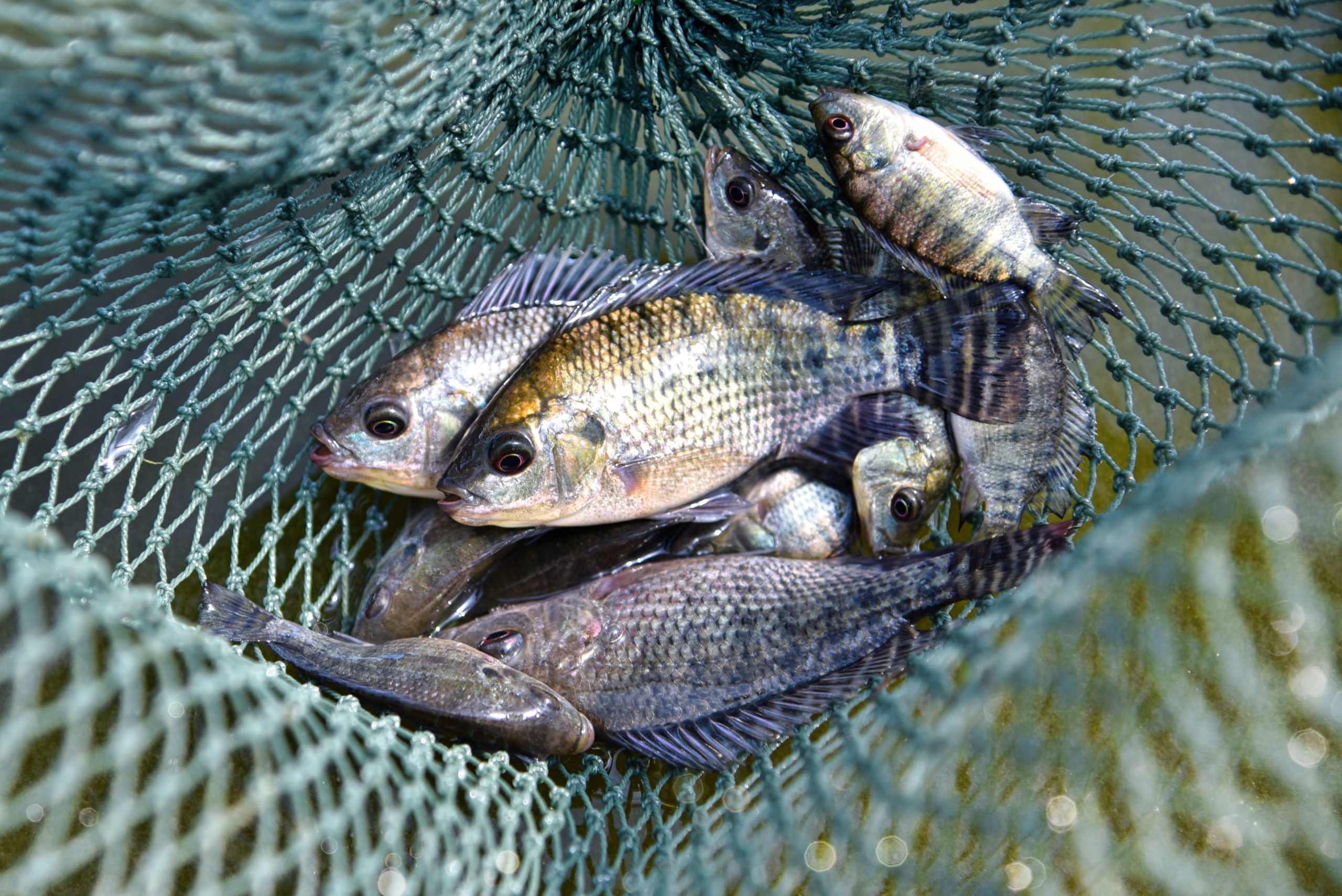Microbiome monitoring to enhance Ghanaian tilapia farming

Project
Microbiome monitoring to enhance Ghanaian tilapia farming
Location
Ghana
Theme
Aquaculture
Funding
Innovation Award
Affordable tools to monitor aquatic pathogens and anticipate disease outbreaks
Project Partners: Esox Biologics, University of Londrina and Tropo Farms
Tilapia fish constitute 9% of global aquaculture production because they are a sustainable and affordable source of protein with excellent feed conversion ratios. Aquaculture provides a crucial source of animal protein to people across the globe. Africa accounts for more than 18% of the world’s population, yet it only accounts for 2.5% of the world’s aquaculture production. The FAO also estimates that in order for Africa to maintain its current consumption of fish per capita, aquaculture production must increase by 74% by 2050.
Preventing outbreaks
This strongly highlights both the challenges and opportunities on aquaculture production in Africa in the next few decades, where tilapia is the most important species on the continent. Like all aquatic animals, tilapia livestock are susceptible to infectious disease. Outbreaks of disease on tilapia farms damage both farm yields and profitability. To support tilapia production in Ghana, their consortium will introduce affordable tools that can more accurately monitor aquatic pathogens and anticipate disease to prevent devastating outbreaks, reducing the costs and increasing the yields of the farms adopting this innovation. Together with training and education on microbiome science these technologies will support the growth of tilapia aquaculture in Ghana.
For more information
For more information on this project, contact us, or view all projects funded under the Climate-Smart Agriculture Partnership programme.
Innovate UK Climate-Smart Agriculture Partnership: UK-Brazil-Africa brings together innovative people and organisations to promote climate-smart agriculture in Africa.

